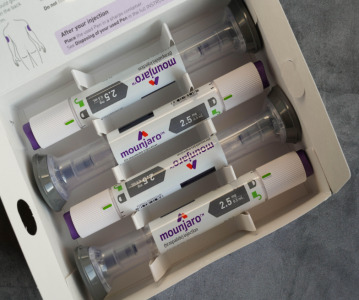First approval for Keytruda in a hematologic malignancy in the EU

European Commission approves Keytruda for patients with relapsed or refractory classical Hodgkin lymphoma who failed ASCT and BV or who are transplant-ineligible and have failed BV.
Merck (MSD) has announced that the European Commission has approved Keytruda (pembrolizumab), the company’s anti-PD-1 therapy, for the treatment of adult patients with relapsed or refractory classical Hodgkin lymphoma (cHL) who have failed autologous stem cell transplant (ASCT) and brentuximab vedotin (BV), or who are transplant-ineligible and have failed BV. The approval allows marketing of Keytruda in all 28 EU member states plus Iceland, Lichtenstein and Norway, at the approved dose of 200 mg every 3 weeks until disease progression or unacceptable toxicity.
“Today’s approval brings an important new treatment option to patients in Europe with classical Hodgkin lymphoma who have not responded to existing therapies,” said Dr Roger Dansey, senior vice president and therapeutic area head, oncology late-stage development, Merck Research Laboratories. “This milestone underscores our commitment to evaluating Keytruda in diseases with unmet need facing the hematology community.”
“For patients with classical Hodgkin lymphoma who have not been successfully treated with prior therapies – many of whom are young and have a poor prognosis – there are limited options and treating the disease poses significant challenges,” said Pier Luigi Zinzani, associate professor of hematology, Institute of Hematology “L. e A. Seràgnoli,” University of Bologna. “With this approval, we will now be able to provide these patients with a much needed new treatment option.”
Related News
-
News The next 15 drugs up for negotiation with Medicare include several blockbusters
By now, everyone is quite familiar with the drug price negotiations taking place between drug companies and the Centres for Medicare & Medicaid Services (CMS) in the USA as part of measures being taken to reduce the cost of drugs for patients, to make ... -
News PSCI Welcomes Delpharm, Samsung Biologics, and Suven as First Supplier Partners
The pharmaceutical industry continues to evolve with an increasing focus on responsible sourcing, sustainability, and collaboration across the supply chain. Under a new model to recognise suppliers within the pharmaceutical and healthcare industry that... -
News Drug prices agreed upon as part of the US Inflation Reduction Act
The Inflation Reduction Act brought into constitution by the Biden administation in 2022, which proposed a drug price negotiation between the government and pharmaceutical companies, has reached it's first agreement. -
News Eisai Alzheimer’s drug authorised in UK but still faces obstacles
In partnership with BioArctic AB, pharmaceutical company Eisai has been granted Marketing Authorisation by the Medicines and Healthcare products Regulatory Agency (MHRA) for its Alzheimer’s disease drug product Leqembi. -
News Eli Lilly's weight loss drugs removed from the FDA's shortage list
The US FDA have recently updated their drug shortage list. The recently released list shows that all dosage forms of Eli Lilly's weight-loss drug Zepbound and their diabetes drug Mounjaro are now available. -
News Global advancements in the diagnosis and treatment of rare diseases: Rare Disease Day 2024
Rare Diseases Day is celebrated on the 29th February 2024 and represents the plight of rare disease patients to gain diagnosis and access to suitable treatment. -
News Pharmaceutical industry supports COP28 health stance in joint statement
As COP28 takes place over this week in Dubai, UAE, several bodies in the pharmaceutical and health industries have come together to announce support of key movements in sustainability in the sector, and to recognise sustainability as a health issue.&nb... -
News Biden backs Cold-War measures to shore-up medical supply chains
In a recent strategy to combat rising inflation and the cost of living crisis, President Joe Biden has invoked a Cold War-era act to increase investment in a selection of medicines and supplies.
Recently Visited
Position your company at the heart of the global Pharma industry with a CPHI Online membership
-
Your products and solutions visible to thousands of visitors within the largest Pharma marketplace
-
Generate high-quality, engaged leads for your business, all year round
-
Promote your business as the industry’s thought-leader by hosting your reports, brochures and videos within your profile
-
Your company’s profile boosted at all participating CPHI events
-
An easy-to-use platform with a detailed dashboard showing your leads and performance



.png)



